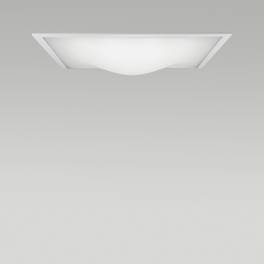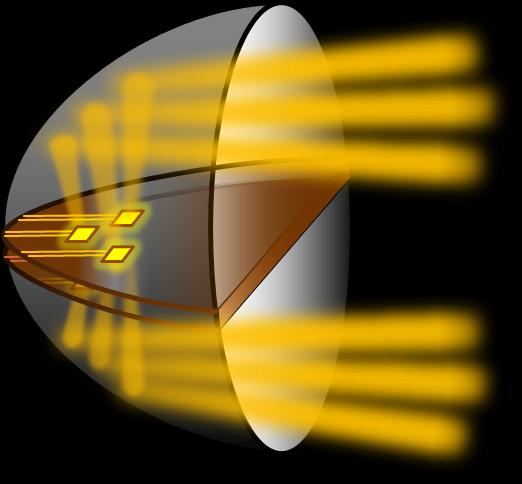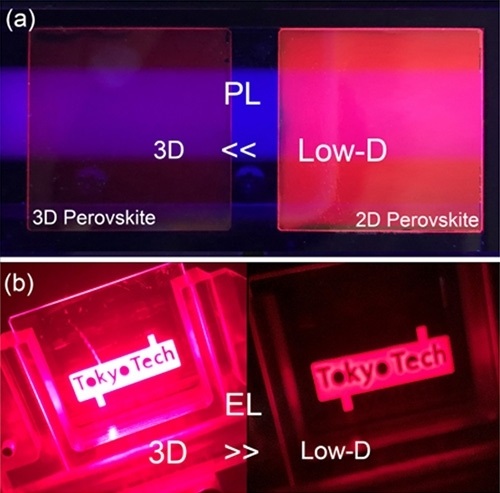Neuchatel, 13 February 2014 — CSEM announces the launch of LASSIE-FP7, a research project
funded by the European Commission to develop a unique integrated solid-state module that will constitute a breakthrough in professional and architectural lighting.
Solid-state lighting (SSL) represents a new revolution in the lighting domain, comparable to the invention of the incandescent bulb in the 19th century. As is unanimously recognized, SSL devices such as semiconductor-based light-emitting diodes (LEDs) are the light sources of the future. They are increasingly used as single components in a variety of lighting applications due to their high efficiency and extremely long lifetimes. However, when it comes to modules and lighting systems, SSL products do not meet the required specifications, thus jeopardizing LED modules’ capacity for full market penetration.
Efficient large-area modules with added intelligence
“Our goal is to develop innovative, large-area, low-cost, intelligent SSL modules with high efficiency and high lighting quality, while assessing their environmental footprint”, states LASSIE-FP7 project coordinator Rolando Ferrini of CSEM. “We are targeting in particular the professional and architectural lighting sectors since they are early adopters of SSL technology and a clear breakthrough in these sectors will be the key to a broad, effective deployment of SSL sources”.
In the next three years, the project LASSIE-FP7, launched in January 2014 by eight European partners under the coordination of CSEM with an EU contribution of EUR 3.15 M, aims to achieve progress beyond the state-of-the-art in terms of size, flexibility, efficiency, lighting quality and beam-shaping, lifetime, added intelligence for light output control, and production costs. It will do so by integrating lightmanagement structures and new color-changing coatings with heat-management solutions and multispectral sensors for color-sensing feedback by means of an innovative roll-to-roll production technology compatible with flexible substrates.
Ferrini explains once more — “The development of new hybrid SSL modules, combining the extremely high efficiency and long lifetime of inorganic LEDs with innovative color-changing coatings based on reliable and stable organic fluorescent dyes, will provide new devices that go beyond the current technological boundaries of SSL. Once this concept has been validated in real luminaires, large-area SSL will impose itself as the new high-efficiency, commercially viable paradigm for professional and architectural lighting. The EU is well-positioned to drive the development of this innovative lighting concept and to benefit from it”.
About LASSIE-FP7
LASSIE-FP7 – Large Area Solid State Intelligent Efficient luminaires
In 2009, in an effort to reduce global energy consumption, the EU Commission decided to move toward a complete ban of incandescent light sources by 2020. Their progressive replacement by highly efficient light sources is expected to reduce energy consumption for lighting by 30%. Among all existing technologies, solid-state lighting (SSL) represents the solution of the future, with the term solid state referring to light emitted by solid-state electroluminescence, as opposed to incandescent bulbs (which use thermal radiation) or fluorescent tubes. However, in spite of the high efficiency and long lifetime offered by single LED components, LED-based luminaires cannot yet match the performance of their classical counterparts and important technological challenges remain to be solved if the successful social and economical impact of SSL is to become reality. In this respect, there is currently a clear need for innovative, large-area, high-performance, reliable, intelligent, and low-cost SSL modules.
About CSEM
CSEM – an innovation center
CSEM, founded in 1984, is a private research and development organization specializing in microtechnology, nanotechnology, microelectronics, systems engineering, photovoltaics, and communications technologies. Over 400 highly qualified and specialized employees from various scientific and technical disciplines work for CSEM in Neuchâtel, Zurich, Muttenz, Alpnach, and Landquart. Further information is available at www.csem.ch













